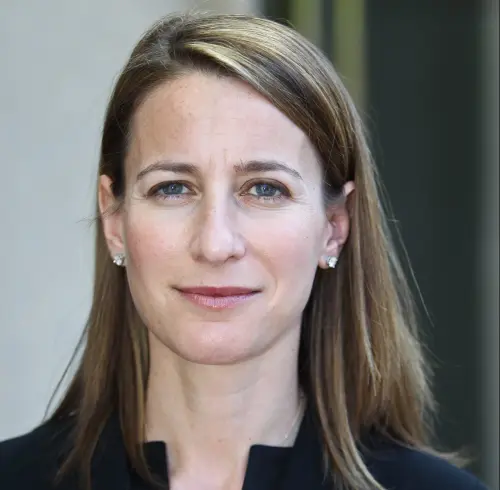Brookings Affiliation
Research Areas
Additional Expertise
- Education in emergencies and reconstruction
- Conflict-affected adolescent girls and boys
- Humanitarian and development assistance
- Advocacy
- Participatory applied research.
Jenny Perlman Robinson is a nonresident senior fellow with the Brookings Institution, Center for Universal Education, where her work focuses on improving quality education and learning for children and youth in low- and middle-income countries at large scale. She is also senior lead for innovation and growth at Youth Impact.
She is the co-author of “Scaling impact in education for transformative change: Practical recommendations from the Real-time Scaling Labs” (Brookings Institution 2023), “Improving financial literacy skills for young people: Scaling the financial education program in Jordan” (Brookings Institution 2022), “Improving children’s reading and math at large scale in Côte d’Ivoire: The story of scaling PEC” (Brookings Institution 2021), “Improving learning and life skills for marginalized children: Scaling the Learner Guide Program in Tanzania” (Brookings Institution 2021), “Millions Learning Real-time Scaling Labs: Designing an adaptive learning process to support large-scale change in education” (Brookings Institution 2018), “Millions Learning: Scaling up quality education in developing countries” (Brookings Institution 2016) and the author of “Global Compact on Learning: Taking action on education in developing countries” (Brookings Institution 2011).
Previously, Jenny led the Women’s Refugee Commission’s work on education and youth. Prior to joining the Women’s Refugee Commission in 2003, Jenny worked on issues of women’s empowerment, human rights, and development with other nongovernmental organizations, the United Nations, and the World Bank. Her fieldwork has included research and assessments in Thailand, Afghanistan, Pakistan, Jordan, Sudan, Kenya, Uganda, Bolivia, and Cuba. Jenny earned her master’s degree in international affairs from Columbia University and her bachelor’s degree in Latin American studies and peace studies from Colgate University.
-
Current Positions
- Senior Lead for Innovation and Growth, Youth Impact
-
Past Positions
- Senior Fellow, Center for Universal Education, The Brookings Institution
- Senior Program Officer, Children and Youth, Women’s Refugee Commission, New York, NY
- Acting Coordinator, NGO Working Group on Women, Peace and Security, New York, NY
- Program Associate, The Hunger Project, New York, NY
-
Education
- Master of International Affairs, Columbia University, School of International and Public Affairs (2001)
- Bachelor of Arts in Latin American Studies and Peace Studies, Colgate University (1996)
